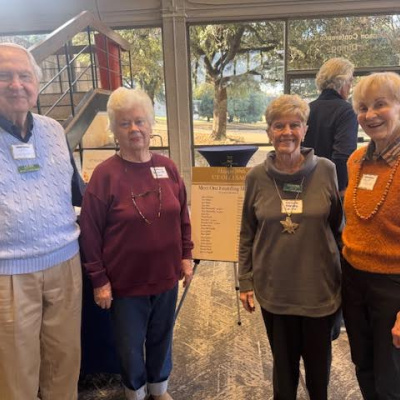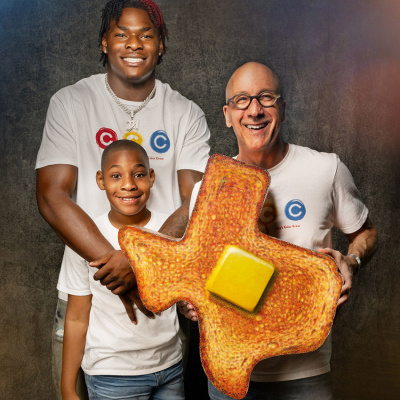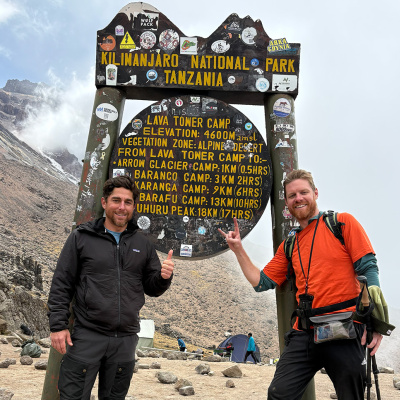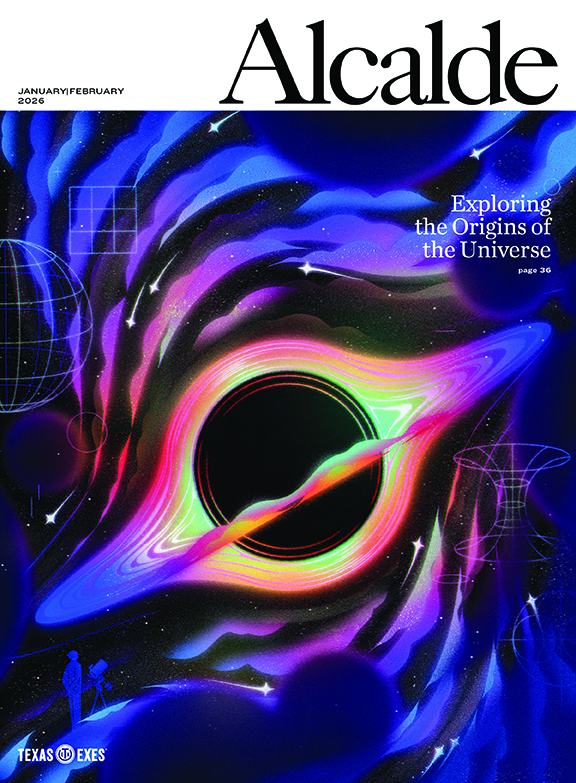Can Food Be Free?
UT alum grows community, food through organization devoted to neighborhood gardens.

As a film student at UT, John VanDeusen Edwards, BA ’08, fell in love with the power of storytelling, but didn't know what story he wanted to tell—until now.
Since January, Edwards has been leading Food is Free, an organization devoted to building community gardens in front yards across Austin and providing free harvests to anyone. Edwards hopes to spread the effort across the country—and possibly the world—and create a documentary about it.
His journey into urban farming began almost two and a half years ago, Edwards says, when a friend gave him some seeds as a gift. Although his first gardening attempt was a failure, he soon started to enjoy the experience of planting a seed and watching it grow.
But it wasn't until last summer when he discovered wicking bed gardens—low-maintenance gardens that only need to be watered every two to four weeks—that the idea for Food is Free was born. After Edwards planted a wicking bed in his front yard, his neighbors stopped to ask questions, prompting some questions of his own.
“What if you lined a whole block with these front-yard gardens and everyone on the block got to experience that connection and meet each other?” Edwards says.
By using salvaged materials—wooden pallets, political campaign signs, donated fabric, and more—Food is Free has made the concept possible at little-to-no-cost and accessible to almost anyone. Already 20 of Edwards’ neighbors on his Brentwood street have gardens, and the movement has expanded to East and South Austin, and to schools and churches.
There are also more than 200 volunteers on the organization’s mailing list, and people in other states and countries—from as far away as Australia and the United Kingdom—have expressed interest in setting up gardens, Edwards says.
“We’re not reinventing the wheel,” Edwards says. “We’re just making something really accessible to folks who need it, which I think is both local food and a sense of community and belonging.”
Initially, Edwards says, he and the other Food is Free organizers thought they would build all of the gardens. They soon realized it would be more effective to create toolkits, including videos and other media, to teach people how to set up their own gardens.
“We’re going to empower people to transform themselves as opposed to physically doing the work for them, which I think has a broader impact,” Edwards says.
For the next six months, the organization will continue to focus on Austin before its national launch, Edwards says. They will set up Food is Free hubs in each part of the city, and continue creating as much media as possible to share, including a documentary that is in the works.
Food is Free also hosts weekly workshops in Austin to help people learn how to set up gardens in their own neighborhoods. Learn more on the organization’s website or its Facebook page.
Photo by Dustin Fedako






